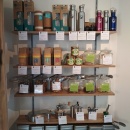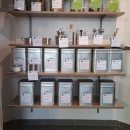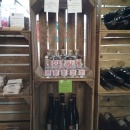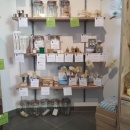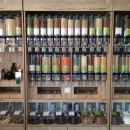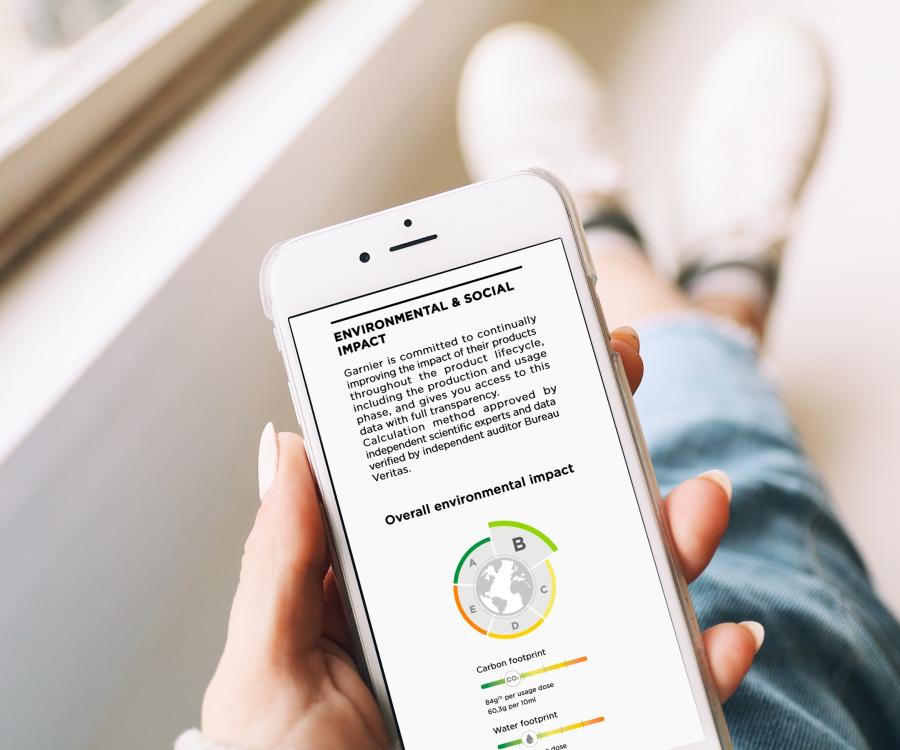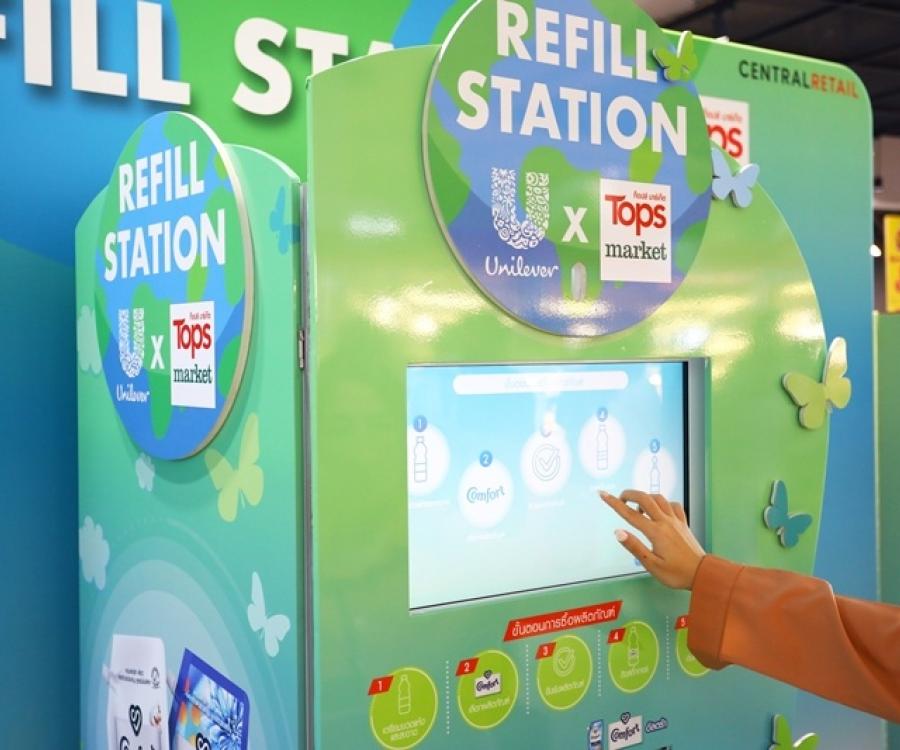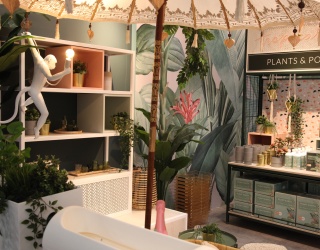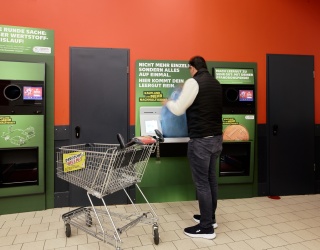Every year, domestic waste – and especially plastic waste - generated by German consumers has seen a steady increase. Bulk (also called zero waste) stores like "Fräulein Jule" in Lohmar, Germany, are combating resource waste. Plastic packaging is the number one villain in this case. Even products like cereals or shampoo are sold without packaging.
We visited the former elementary school teacher and owner Bettina Roth at her lovingly designed store, which only measures 20 square meters and learned a lot about the challenges and objectives of her business.

Ms. Roth, “Fräulein Jule” opened its doors on September 1, 2018 in Lohmar. How are things going?
Bettina Roth: I am very pleased. Obviously, one can’t venture a guess at the store’s future after this short amount of time. Different types of people have frequented our store so far. Some visit because they are curious about the new store, while other guests stop by because they want to create less waste. This is an important subject matter for many and they are delighted that they no longer have to drive to Cologne or Bonn to shop accordingly.
Besides environmental protection, are there any other advantages of bulk stores?
Bettina Roth: Absolutely, though it is the primary concern of course. The high quality of our products is yet another benefit. I carefully choose our vendors and manufacturers. Our products are locally sourced and organic whenever possible. It is also important to slow customers down when they shop. We are not bombarding them with products. Instead, they can take their time to look around and explore. This makes shopping far more deliberate because it prompts customers to first plan where and what items they want to purchase.
“Zero waste” shopping is not a new concept. After all, people never used to package their items in plastic in the old days. It was common to take your milk jug to the farmer and pick your apples and place them in a basket.
Bettina Roth: People tend to forget that you don’t have to wrap everything to make it portable. At the very least, don’t package things in plastic or other materials that are harmful to the environment.
What types of products can I buy at your store?
Bettina Roth: We offer quite a large selection. We primarily sell non-perishable products such as legumes, dried fruits and pasta. We also sell honey, broths, oils, and vinegars. We also offer a large selection of cosmetics and laundry items, featuring plastic-free toothbrushes, package-free shampoos, toothpastes, and detergents.

Why don’t you sell fresh products? Is this the standard for zero waste stores?
Bettina Roth: No, it isn’t. There are shops in Trier, as well as in other big cities, that also sell products that require refrigeration. We are simply too small and brand-new in the market. Our warehouse is even smaller than the store, which is why we are unable to store these types of products at this point. Time will tell whether we will be able to include fresh products in our product selection in the future.

What are some of the challenges you face, also given the fact that you have changed careers?
Bettina Roth: What is the right quantity of goods? What is the best way to set up our tiny warehouse? What is the best product layout for both the customers and sales assistants? We still act on instinct and not so much based on a structure when it comes to these questions. We also have to solve many bureaucratic and administrative issues. That’s why we learn something new every day, which can only make us better and stronger.
That’s obvious when you look at the store. Despite its small size, it is very inviting and uncluttered and shows great attention to detail.
Bettina Roth: Thank you. We primarily feature our products in so-called bulk containers that we imported from the U.S. Needless to say, hygiene is an important factor since our customers have the option of self-service at our store – though disposable plastic gloves are obviously a no-go. The containers and filling liquid products straight into canisters are elegant solutions because customers are not in direct contact with the products.

Can I buy something at your store without bringing my own container?
Bettina Roth: We have several ways for you to safely transport your items. One option is for customers to bring their own glassware, bottles, and tins, which they weigh at the store beforehand, fill them and then pay for the actual measured quantity. Customers can also purchase and fill reusable fabric bags, glassware, and pump bottles. What’s more, some customers give us old glass containers that they no longer need. We wash them and make them available for other customers to take and reuse at no cost.
We sell our beverages in returnable bottles with the exception of champagne bottles: they are disposable and can only be filled once since they are pressurized.

The gin bottles are also disposable bottles …
Bettina Roth: That’s true but sometimes you can bend the rules a bit.


